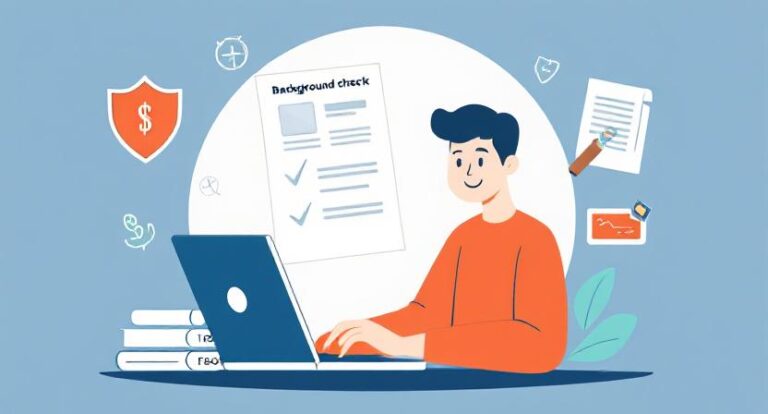Let’s be honest—credit scores can feel like some sort of financial sorcery. One month you’re cruising with a 720, the next it drops 40 points and you don’t even know why. But here’s the truth: your credit score doesn’t have to be a mystery, and it’s not just a number. It’s a key that can open doors (or lock them) in your financial life.
In this guide, we’ll break down exactly how credit scores work, why they matter, and the most effective ways to improve yours without going broke or crazy. Whether you’re starting from scratch or recovering from past mistakes, we’ve got you covered.
What Is a Credit Score, Really?
A credit score is a three-digit number that represents your creditworthiness—or how risky you are to lenders. In the U.S., the most common type is the FICO score, which ranges from 300 to 850.
- Excellent: 800+
- Very Good: 740–799
- Good: 670–739
- Fair: 580–669
- Poor: Below 580
This score influences everything from your ability to get a credit card or mortgage to how much you’ll pay in interest and even whether you can rent an apartment.
Why Your Credit Score Matters
- Lower Interest Rates: Higher scores = better loan terms.
- Approval Odds: Lenders are more likely to say yes.
- Job and Rental Applications: Some employers and landlords check credit.
- Insurance Premiums: Yes, your score can affect those too!
In short, a strong credit score saves you money and opens up financial opportunities. A weak one can be a very expensive burden.
What Affects Your Credit Score?
Understanding what goes into your score is the first step to improving it. Here’s a breakdown of the FICO score factors:
1. Payment History (35%)
This is the biggest slice of the pie. Paying bills on time is crucial. Late payments, defaults, or collections are red flags.
2. Credit Utilization (30%)
How much of your available credit are you using? Try to keep it below 30%, ideally under 10% for a boost.
Example: If your credit card limit is $1,000, aim to keep the balance under $300.
3. Length of Credit History (15%)
Older accounts help, so don’t close your oldest card unless absolutely necessary.
4. New Credit Inquiries (10%)
Every time you apply for credit, it can ding your score slightly. Too many inquiries in a short time looks risky.
5. Credit Mix (10%)
Having different types of credit (credit card, car loan, student loan) helps. It shows you can manage various accounts.
How to Check Your Credit Score (For Free)
You can check your score without hurting it. Here are a few safe places:
- AnnualCreditReport.com (free full report from all 3 bureaus)
- Credit Karma or Credit Sesame (free VantageScore estimates)
- Your credit card issuer (many now offer free FICO scores)
Pro Tip: Your credit report is different from your score. Your report shows the details behind your score—accounts, balances, late payments, etc.

How to Improve Your Credit Score (Quick Wins + Long-Term Strategy)
1. Pay Every Bill On Time
Seriously. Even a single missed payment can tank your score. Set reminders or automate payments.
2. Pay Down Credit Card Balances
This can boost your score in as little as 30 days. Prioritize cards with the highest utilization.
3. Ask for a Credit Limit Increase
If you’re managing your card well, your issuer might bump your limit—which improves utilization without more debt.
4. Become an Authorized User
Ask a trusted friend or family member to add you to their card. Their positive history can help lift your score.
5. Dispute Errors on Your Report
Mistakes happen. Check your report and challenge any inaccurate late payments or balances.
6. Avoid New Credit Applications (for a while)
Each new inquiry can hurt your score temporarily. Only apply for credit when necessary.
7. Use a Secured Credit Card to Build Credit
If you’re starting from scratch or rebuilding, secured cards can be a powerful tool. Just be sure it reports to all three bureaus.
Rebuilding After Bad Credit
Life happens. Whether it was a job loss, medical debt, or just poor decisions, bad credit doesn’t have to be forever.
Start Fresh:
- Focus on current accounts, not past mistakes.
- Pay off collections (negotiate pay-for-delete if possible).
- Keep new accounts in good standing.
Rebuild Timeline:
- 0-3 months: Pay everything on time, lower credit utilization.
- 3-6 months: Add positive credit behavior (authorized user, secured card).
- 6-12 months: See gradual score increases; refinance loans for better rates.
Remember: rebuilding takes time, but it’s entirely possible.
Credit Score Myths (Debunked)
- Checking your own score hurts it. Not true. Only hard inquiries (like a loan application) affect your score.
- You need to carry a balance to build credit. Nope. You can pay in full every month and still build great credit.
- Closing credit cards helps your score. Usually the opposite. Closing an account reduces your credit limit and average account age.
- Your income affects your credit score. Surprisingly, it doesn’t. Income affects your ability to get approved, but not your score itself.
Tools and Resources to Help
- Experian Boost: Lets you add utilities and phone bills to your credit history.
- Self Credit Builder Account: Builds credit and savings at the same time.
- Credit Karma: Free tools, monitoring, and personalized recommendations.
When to Seek Professional Help
If you’re overwhelmed or dealing with collections, credit counseling agencies can help. Look for non-profit organizations like:
- NFCC (National Foundation for Credit Counseling)
- Money Management International
Avoid sketchy “credit repair” companies that charge big fees and make false promises.
Final Thoughts: Credit Doesn’t Define You—But It Empowers You
A credit score isn’t a moral judgment. It’s just a number based on your financial history. But understanding and improving it can make a massive difference in your life—lower costs, more freedom, and less financial stress.
Whether you’re just starting out, trying to get out of debt, or aiming for a perfect 850, the key is consistent, smart behavior over time.
Don’t let fear or past mistakes hold you back. You’ve got this. The best time to take control of your credit is now.




